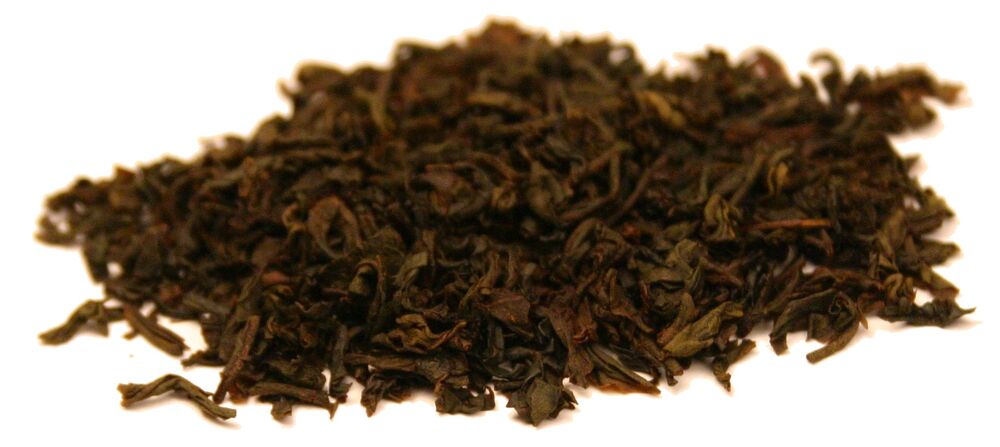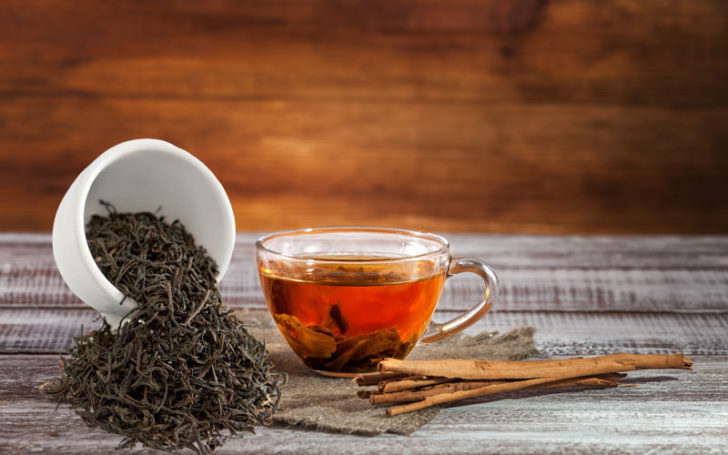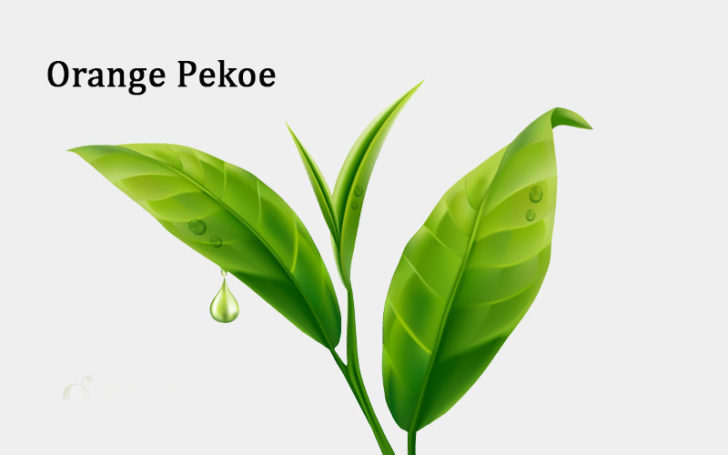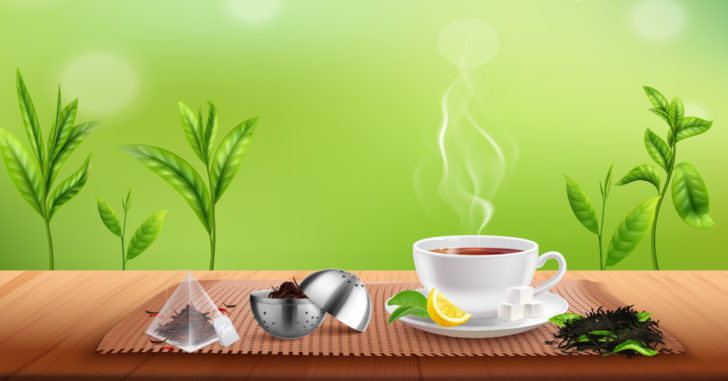Beauty & Health
Orange Pekoe: A Super Grading of Black Tea
About Orange Pekoe Tea :
Orange peyoke OP), also spelled “pecco“, is a term used in the Western tea trade to describe a particular genre of black teas (Orange pekoe grading). Despite a purported Chinese origin, these grading terms are typically used for teas from Sri Lanka, India and countries other than China; they are not generally known within Chinese-speaking countries. The grading system is based upon the size of processed and dried black tea leaves.
The tea industry uses the term Orange Pekoe to describe a basic, medium-grade black tea consisting of many whole tea leaves of a specific size; however, it is popular in some regions (such as North America) to use the term as a description of any generic black tea (though it is often described to the consumer as a specific variety of black tea). Within this system, the teas that receive the highest grades are obtained from new flushes. This includes the terminal leaf bud along with a few of the youngest leaves.
Grading is based on the size of the individual leaves and flushes, which is determined by their ability to fall through the screens of special meshes ranging from 8–30 mesh. This also determines the wholeness, or level of breakage, of each leaf, which is also part of the grading system. Although these are not the only factors used to determine quality, the size and wholeness of the leaves will have the greatest influence on the taste, clarity, and brewing-time of the tea.
When used outside the context of black-tea grading, the term “pekoe” (or, occasionally, Orange pekoe) describes the unopened terminal leaf bud (tips) in tea flushes. As such, the phrases “a bud and a leaf” or “a bud and two leaves” are used to describe the “leafiness” of a flush; they are also used interchangeably with pekoe and a leaf or pekoe and two leaves. (orange pekoe tea)
Etymology
The origin of the word “pekoe” is uncertain.
One explanation is that “pekoe” is derived from the transliterated mispronunciation of the Amoy (Xiamen) dialect word for a Chinese tea known as white down/hair (白毫). This is how “pekoe” is listed by Rev. Robert Morrison (1782–1834) in his Chinese dictionary (1819) as one of the seven sorts of black tea “commonly known by Europeans”. This refers to the down-like white “hairs” on the leaf and also to the youngest leaf buds.
Another hypothesis is that the term derives from the Chinese báihuā “white flower” (白花), and refers to the bud content of pekoe tea. Sir Thomas Lipton, the 19th-century British tea magnate is widely credited with popularizing, if not reinventing, the term for Western markets.
The “orange” in Orange Pekoe is sometimes mistaken to mean that the tea has been flavored with orange, orange oils, or is otherwise associated with oranges. However, the word “orange” is unrelated to the tea’s flavor. There are two explanations for the meaning of “orange” in Orange Pekoe, though neither is definitive:
- The Dutch royal House of Orange-Nassau. The Dutch East India Company performed a central role in bringing tea to Europe and may have marketed the tea as “orange” to suggest a royal warrant.
- The copper color of a high-quality, oxidized leaf before drying, or the final bright orange color of the dried pekoes in the finished tea. These usually consist of one leaf bud and two leaves that are covered in fine, downy hair. The orange color is produced when the tea is fully oxidized.
Manufacture and grades
Pekoe tea grades are classified into various qualities, each determined by how many of the adjacent young leaves (two, one, or none) were picked along with the leaf buds. Top-quality pekoe grades consist of only the leaf buds, which are picked using the balls of the fingertips. Fingernails and mechanical tools are not used in order to avoid bruising.
When crushed to make bagged teas, the tea is referred to as “broken”, as in “Broken Orange Pekoe” (also “Broken Pekoe” or “BOP”). These lower grades include fannings and dust, which are tiny remnants created in the sorting and crushing processes.
Orange Pekoe is referred to as “OP”. The grading scheme also contains categories higher than OP, which are determined primarily by leaf wholeness and size.
Broken, Fannings and Dust orthodox teas have slightly different grades. Crush, Tear, Curl (CTC) teas, which consist of leaves mechanically rendered to uniform fannings have yet another grading system.
Grade terminology
- Choppy: Tea that contains many leaves of various sizes.
- Fannings: Small particles of tea leaves used almost exclusively in tea bags. A grade higher than Dust.
- Flowery: A large leaf, typically plucked in the second or third flush with an abundance of tips.
- Golden Flowery: Tea that includes very young tips or buds (usually golden in colour) that were picked early in the season.
- Tippy: Tea that includes an abundance of tips. (orange pekoe tea)

Is pekoe black tea or herbal tea is the question that comes to mind when we learn about the benefits of drinking this tea.
The basic meaning of the term “orange pekoe” is the highest quality fortified Tea grade of Western and South Asian tea types.
For convenience, yes, pekoe is a high-class form of black tea that has many benefits and contains a very small percentage of nicotine.
Let’s learn all about pekoe in the following lines. (orange pekoe tea)
What is Orange Pekoe?

Orange Pekoe tea is a whole leaf grade black tea obtained from the youngest leaves, or sometimes buds, of the tea plant.
Unlike tea made from powder or from the spectrum, pekoe has a rich flavor with delicate floral cup notes. (orange pekoe tea)
Mystery behind orange pekoe name:
Pekoe is pronounced ‘peek-oo’, the word pekoe is derived from the Chinese word ‘pey ho’ meaning white down, denoting the hair of fresh young tea leaves.
The orange in its name comes from the Dutch Royal Family, who brought and introduced this tea and became the largest importer of orange pekoe in 1784.
The quality produced was of rich quality and hence people started calling it orange pekoe tea and still this name is used to refer to this top quality black tea. (orange pekoe tea)
Orange Pekoe VS other Teas, why orange pekoe is the best?
Orange pekoe is black tea. However, it is not the same black tea you find in nearby commercial stores or online.
Why?
because of quality.
Orange pekoe tea is made from pure fresh young leaves with no dust, while black teas in commercial stores are produced with low-quality powder or leaf residues.
But Orange Pekoe tea is different from white tea or herbal oolong tea. (orange pekoe tea)
Orange Pekoe Quality and Taste Analysis:

Orange pekoe tea is available in the market in different forms, some of them are super quality and a little pricey while others are cheaper but also lack superiority.
How does the quality of this orange pekoe tea differ from each other? Well, because of this rating.
You can find different types of grading in making orange pekoe, such as:
- Flowering Orange Pekoe (From Buds)
- Orange Pekoe (High leaf)
- Pekoe (from 2nd High Leaf)
- pekoe souchong
- souchong
- Congo
- Bohea (last leaf)
Quality of Orange Pekoe
These are the best quality orange pekoe teas available in the market.
1. Finest Tippy Golden Flowery Orange Pekoe (FTGFOP)
This orange pekoe tea is of exceptional quality and best of all. It is made from the numerous golden tips of the tea plant.
The best-known variety is Assam FTGFOP, grown on the Belsari estate of India.
Its taste is malty and sharp, and it is recommended to brew it in boiling water for 3-4 minutes.
2. TGFOP: Tippy Golden Flowery Orange Pekoe
Less qualitative than FTGFOP but still good quality.
3. GFOP: Golden Flowery Orange Pekoe
Gold refers to the colored tips at the end of the upper bud.
4. FOP: Flowery Orange Pekoe
It is made from the first two leaves and buds.
5. OP: Orange Pekoe
It consists of long, thin leaves without ends. Other types are OP1 and OPA.
It is more delicate, wiry and slightly longer with a light liquor than the OP1 orange pekoe. The OPA is tighter-wrapped or almost open, longer and bolder than the OP.
Besides the above grading, the broken leaf, fan and dust grading system is also popular.
Orange Pekoe Taste:

The flavor of orange pekoe varies depending on its origin, for example:
Black organic orange pekoe tea or Organic Ceylon is rich in flavor and gives you the golden color of a delicious tea. You can also add some milk to further enhance the golden hues and rich taste.
Indian orange pekoe tea tends to be more spicy, smoky, rich and malty.
Regarding the grades of orange pekoe, the rule of thumb is, the lesser the letters, the lighter the flavor—for example, TGFOPK will be lighter than OP (orange pekoe)
Orange Pekoe Tea Benefits:
The biggest benefit of Orange Pekoe tea is that it helps against bacterial infections. Tea is enriched with antimicrobial properties.
This means that drinking orange pekoe black tea regularly will reduce the growth of harmful oral bacteria and help relieve mouth infections, sore throat and dental cavity etc. means to keep it away.
Let’s find out the Benefits of Orange Pekoe Tea in detail:
1. Helps Fighting Intestinal infections
Its antimicrobial properties help fight bacteria.
Studies have shown that black tea inhibits the growth of harmful oral bacteria that lead to tooth and throat infections.
2. Improves Attention and Self-reported alertness
Tea is the second most consumed beverage in the world. It has been proven to play an active role in our daily cognitive function, thanks to the presence of caffeine and L-theanine, along with some other properties.
If you want less caffeine, you can opt for decaffeinated orange pekoe.
Q: How much caffeine is in orange pekoe tea?
Answer: Orange pekoe tea has much less caffeine than coffee. A regular container contains about 34 mg of caffeine.
3. Helps in Maintaining Blood Sugar level
Black tea has amazing properties to maintain the blood sugar level in our body. A study was conducted to test the role of Srilankan Orange Pekoe tea in lowering blood sugar levels.
It was concluded that black tea infusion has an insulin-mimetic effect with the ability to increase insulin sensitivity.
4. Eliminates the Risk of Stroke
A stroke is a sudden blockage or interruption in the arteries that carry blood to the brain. It is the second leading cause of death in the world.
According to a study that aims to determine the relationship between tea consumption and stroke risk, there is a strong relationship between tea consumption and stroke risk prevention.
5. Lowers the Risk of Breast Cancer
We all know that cancer is deadly. According to the American Cancer Society, more than six hundred thousand deaths from cancer occurred in 2019 in the United States alone.
The antioxidants and polyphenols in orange pekoe black tea help prevent cancer-causing cell mutation.
Various studies have been done so far to know whether tea consumption is associated with breast, liver, prostate, stomach or other types of cancer.
Studies conclude that the consumption of three glasses a day is significantly associated with a reduced risk of breast cancer.
6. Lowers The Risk of Type-2 Diabetes
According to data released by the US Centers for Disease Control and Prevention, 79,000 deaths occur each year due to diabetes.
Four or more glasses a day has been proven to play an active role in reducing the risk of type 2 diabetes.
7. Improves Gut Health
The antimicrobial and polyphenols in black tea help improve one’s gut health.
There are trillions of good and bad bacteria in our digestive system.
The importance of our intestines in the overall function of our system can be measured from the fact that 70-80% of our immune system depends on our digestive system.
Therefore, you will always find immune-boosting foods marketed more than any other food that can boost our immunity.
8. Reducing Cholesterol and Heart Disease Risk
Orange Pekoe tea also plays an important role in lowering cholesterol levels in hypercholesterolemic adults (people with high cholesterol levels).
One study showed that tea consumption reduces total and LDL cholesterol, thereby reducing the risk of any heart disease.
9. A Powerful Antioxidant
Orange Pekoe tea, or other varieties, namely black tea, has high levels of antioxidants with many health benefits.
It is rich in flavonoids, a compound that helps reduce the risk of heart disease and certain types of cancer.
Also, its powerful antioxidant property helps reduce free radicals in the body that would otherwise cause diseases such as asthma and Alzheimer’s.
Orange pekoe Tea Side Effects:
Everything has some drawbacks or limitations. However, we can save ourselves from some harm by following some precautions.
Therefore, we discuss some of the harms of orange Pekoe tea:
1. Orange pekoe 34 mg Caffeine Content:
Yes, orange pekoe is a black tea and despite all its benefits, it contains 34 mg of caffeine content.
For this, you can order decaffeinated orange pekoe as it does not contain caffeine and nicotine.
2. Feeble body or Weak bones:
More than one cup of Orange Pekoe black tea can increase the fluoride content in your body. As a result, it can cause bone weakness and body weakness.
It can also be the cause of pain in the arms or legs. To avoid this orange pekoe side effect, reduce its daily consumption.
3. Loss or gain of weight:
It behaves differently in different people, as it can cause you to gain or lose weight.
In the worst case, black tea can infect the blood or affect the brain if consumed regularly in higher amounts and becomes an addiction.
You can avoid these side effects by reducing the amount of orange pekoe consumption.
How to Make Orange Pekoe Tea?
Let’s look at the step-by-step process for making orange pekoe.
- Get enough water in the teapot, make 4 cups of tea if you want like 6 cups etc.
- The water you will receive should be cold water and never used before or even hot tap water.
- Boil the water for at least 15 minutes or until the water begins to boil.
- Put your tea bag in a teapot and pour boiling water into it. Let it steep for 3-4 minutes and mix gently. Add sugar if needed.
- You can make it even tastier by adding milk or lemon.
- If you want iced tea, don’t put it in the fridge or freezer right away. Instead, let it cool at room temperature. When cool, add ice cubes as desired.
You will find that your orange pekoe tea tastes much better than the commercial black teas we drink at home.
Conclusion
The pure thing, although hard to find or heavy on your pocket, gives you flavor and quality you won’t find in ordinary things.
Although there is no orange in orange pekoe, the thin buds and young leaves from which it is still made set it apart. So the next time you’re looking for top quality tea, be sure to check out the orange pekoe tea bags.
Have you ever had orange pekoe? If yes, then let us know how you feel? Did you feel any difference between this and your traditional black tea? Let us know in the comment section.
Also, don’t forget to pin/bookmark and visit our blog for more interesting but original information. (Can Cats Eat Honey)

